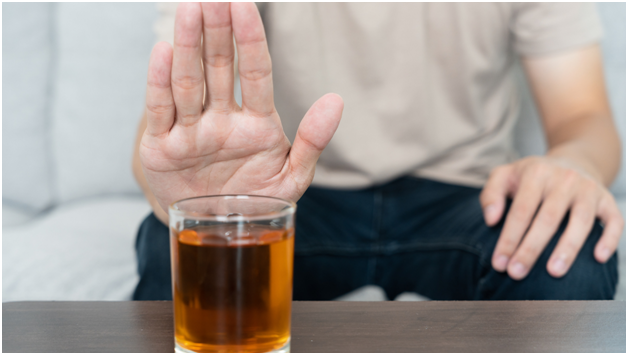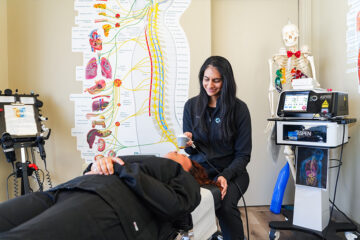8 Healthy Coping Mechanisms to Replace Alcohol and Drug Use

Overcoming alcohol or drug dependence is a challenging journey, but developing healthier coping mechanisms can make the process more manageable. Many individuals turn to substances as a way to deal with stress, anxiety, trauma, or emotional pain. Finding alternative strategies to manage these challenges is crucial for long-term recovery. Here are eight effective and healthy coping mechanisms to replace alcohol and drug use.
1. Engage in Physical Activity
Exercise is one of the most effective natural stress relievers. Physical activity releases endorphins, which are known as “feel-good” hormones, helping to improve mood and reduce anxiety. Regular exercise also provides a structured routine, which can be beneficial for those in recovery.
Whether it’s jogging, yoga, weight training, or even dancing, finding a physical activity that feels enjoyable can provide an excellent outlet for stress. Group activities like team sports or fitness classes can also create a sense of community and support.
2. Practice Mindfulness and Meditation
Mindfulness techniques can help individuals stay present and process emotions without resorting to alcohol or drugs. Meditation, deep breathing exercises, and guided visualization can reduce stress and promote emotional regulation.
By practicing mindfulness, individuals can gain a better awareness of their triggers and learn to respond to them in healthier ways. Even just a few minutes of deep breathing or guided meditation daily can have a profound impact on emotional well-being.
3. Build a Strong Support Network
Recovery is not a journey that should be taken alone. Building a network of supportive friends, family, or recovery groups can make all the difference. Surrounding oneself with positive influences can provide encouragement and accountability during difficult times.
Support groups such as Alcoholics Anonymous (AA) or Narcotics Anonymous (NA) offer structured peer support, while therapy groups provide professional guidance. Having someone to turn to when facing cravings or emotional distress can prevent relapse and promote long-term success.
4. Develop Creative Outlets
Engaging in creative activities can serve as a productive way to manage emotions and reduce stress. Many people find solace in art, music, writing, or crafting. Expressing emotions through creativity can be a therapeutic way to process complex feelings without relying on substances.
Journaling, for example, can help individuals track their progress, recognize patterns in their emotions, and express gratitude. Playing an instrument, painting, or engaging in other forms of art can provide a sense of purpose and accomplishment.
5. Focus on Healthy Nutrition
A well-balanced diet plays an essential role in mental and physical health. Many individuals struggling with addiction often neglect proper nutrition, which can impact mood, energy levels, and overall well-being.
Consuming nutrient-dense foods rich in vitamins, minerals, and protein can help stabilize blood sugar levels, improve brain function, and support overall recovery. Staying hydrated and avoiding excessive caffeine or processed foods can also contribute to emotional balance and better decision-making.
6. Establish a Daily Routine
Creating and maintaining a structured daily routine helps reduce uncertainty and provides stability. A schedule that includes regular wake-up and sleep times, meal planning, and designated activities can help individuals stay focused and engaged in recovery.
Having a structured routine minimizes idle time, which can often lead to cravings or relapse. Setting daily goals, even small ones, fosters a sense of purpose and motivation to continue making positive choices.
7. Seek Professional Support
Recovering from alcohol or drug use is a complex process that often requires professional guidance. Alcohol and substance abuse therapy provides individuals with the tools to navigate cravings, manage emotional triggers, and develop healthier coping strategies.
Therapy can take various forms, including individual counseling, cognitive-behavioral therapy (CBT), or group therapy. Working with a trained professional helps address underlying issues that contribute to substance use, such as trauma, anxiety, or depression.
8. Engage in Service or Volunteer Work
Giving back to the community can be an incredibly fulfilling way to shift focus away from substance use. Helping others fosters a sense of purpose and strengthens emotional resilience.
Volunteering at local charities, community centers, or support groups can create meaningful connections and build self-worth. Acts of service, no matter how small, contribute to a positive mindset and a healthier lifestyle.
Replacing alcohol and drug use with healthier coping mechanisms is essential for long-term recovery. Engaging in physical activity, practicing mindfulness, building a support network, and seeking professional therapy can all contribute to emotional stability and well-being. By focusing on self-care and structured routines, individuals can create a fulfilling and substance-free life. Recovery is a continuous process, but with the right strategies and support, it is entirely achievable.
Leave a reply
You must be logged in to post a comment.











